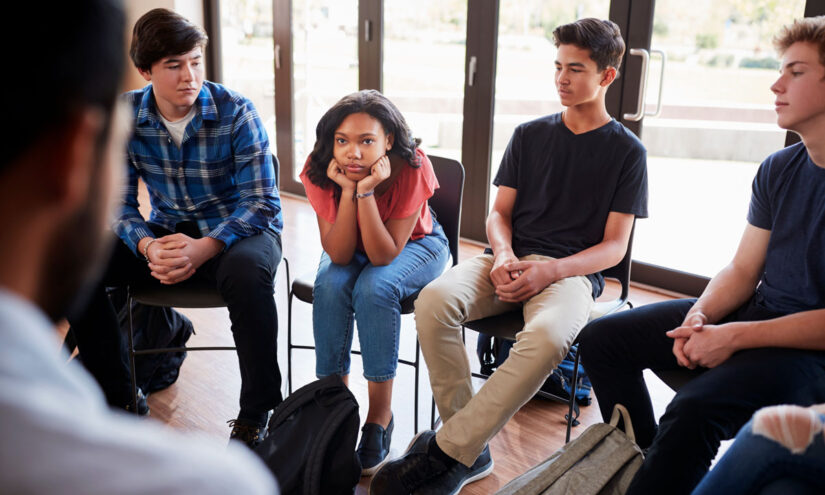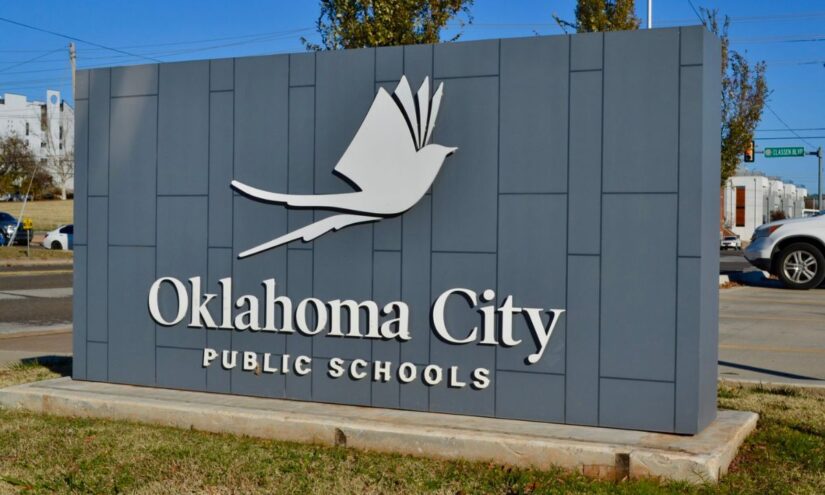According to the Centers for Disease Control and Prevention (CDC), while there h …
Innovative Approach to Report Cards Aims to Develop Reading, Writing, Collaboration, and Work Skills
Carlos Changemaker

A movement is underway to eliminate traditional A-F grading systems in favor of tracking high school students’ mastery of academic and life skills. This shift has gained significant traction, with the collaboration of five states and influential partners working towards its advancement.
The “Skills for the Future” initiative aims to enable schools to prioritize “durable” skills like critical thinking, teamwork, and perseverance on par with traditional subjects such as math and English. This includes introducing new tests and report cards that assess students’ proficiency in these essential skills, crucial for their future endeavors in colleges or jobs.
The partnership between the Educational Testing Service (ETS) and Carnegie Foundation for the Advancement of Teaching, which initiated last year, has expanded with the inclusion of five additional states this spring – Indiana, Nevada, North Carolina, Rhode Island, and Wisconsin. The Mastery Transcript Consortium, known for its pioneering mastery-based report card, has now become part of ETS, a company overseeing college admissions tests like the SAT and GRE, as of May.
As the business landscape shifts towards skills-oriented hiring, emphasizing competencies over formal degrees, the aim of the collaboration is also to promote competency-based learning. This approach allows students to progress at their pace rather than conforming to traditional classroom timelines.
“The concept of focusing on durable and transferable skills in education is tremendously exciting,” stated Scott Looney, the founder of the Mastery Transcript Consortium, which recently integrated its innovative report card into the collaboration. “It will not only enhance student engagement and interest in schools but also render education more meaningful.”
“I believe this initiative can reach millions of students,” added Looney.
This new endeavor represents a significant departure from the historical practices championed by the Carnegie Foundation. The foundation, known for introducing the credit hour or Carnegie Unit concept to measure learning based on time spent, acknowledges that this approach is outdated. The focus now is on evaluating student progress based on mastery of individual skills rather than adhering to rigid time constraints.
“Our goal is to shift away from the time-centered credit hours model to competency-based learning, enabling students to progress based on skills acquired rather than adhering to fixed timelines,” underlined Carnegie President Tim Knowles.
Laura Slover, managing director of the initiative, highlighted the future goal of showcasing character traits that are deemed critical for academic success, job performance, and overall life achievements. The ultimate aim is to develop a portable transcript that demonstrates students’ skills and competencies, facilitating their interactions with employers and college admission departments.
Transitioning towards this approach necessitates schools to identify key skills for assessment and determine suitable evaluation methods. While standardized tests abound for subjects like math and English, consistent means of assessing skills like communication and collaboration remain elusive across different teachers, subjects, schools, and states.
This spring, the five participating states joined the Skills for The Future collaboration to devise strategies for measuring student progress in durable skills. They are exploring approaches based on statements like “Portrait of a Graduate” or “Portrait of a Learner,” which some states have endorsed to outline desired student attributes and values. Common focus areas include communication, collaboration, persistence, digital literacy, critical thinking, and creative thinking, as stated by Knowles.
Collaborating in California in April, ETS, Carnegie, and the states are engaging with educators, students, colleges, and businesses to brainstorm innovative assessment strategies that could potentially be piloted by January 2025. Proposals include interactive testing that adjusts question difficulty based on responses and incorporating game-based assessment methods.
The partners are deliberating on leveraging artificial intelligence and student portfolios, encompassing various academic and extracurricular activities, to gauge character and interdisciplinary skills accurately. However, ensuring the reliability and credibility of such portfolios poses challenges for authenticity verification by external entities.
Viewing the initiative as an opportunity to enhance consistency in educational assessments, Nevada state superintendent Jhone Ebert anticipates the development of standardized guidelines to maintain uniformity across schools nationwide.
“We aim to involve educators, state leaders, and stakeholders in the design process to ensure inclusivity and relevance from the outset,” emphasized Ebert.
Originating in 2017 with private institutions seeking to showcase student skill progress comprehensively, the Mastery Transcript Consortium introduced a transcript model shifting from traditional semester courses to reflecting approximately 60 distinct skills. With over 370 member schools and districts, the consortium has gained the acceptance of 500 colleges willing to consider applicants based on this skill-focused transcript.
Furthermore, an intermediate report tracking student development in durable skills has been created as a supplementary resource for schools transitioning to this approach gradually.
Despite steady growth in membership, director Mike Flanagan acknowledges the consortium’s limited reach and commends the influence of partnering with ETS, Carnegie, and five states to amplify their impact.
While the success of implementing mastery and soft skills measurements nationwide remains uncertain, previous initiatives in states like Maine and New Hampshire faced challenges and are often perceived as unsuccessful endeavors.
Identified obstacles include federal academic testing mandates constraining flexibility and potential resistance from schools and parents towards this transformative shift. However, the collaborative efforts of Skills For the Future aim to lay the groundwork for easier adoption by schools and teachers, facilitating the transition.
Scott Marion, executive director of the National Center for the Improvement of Educational Assessment, applauds the initiative’s ambitious goals while recognizing the formidable hurdles. Enhancing competency and soft skill evaluation on a national scale remains a daunting task but holds promise in reshaping educational paradigms effectively.



